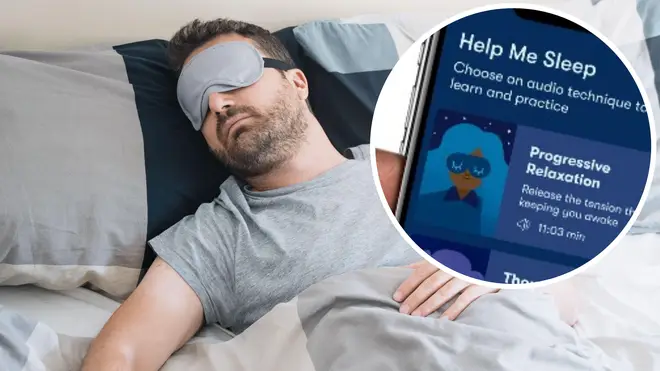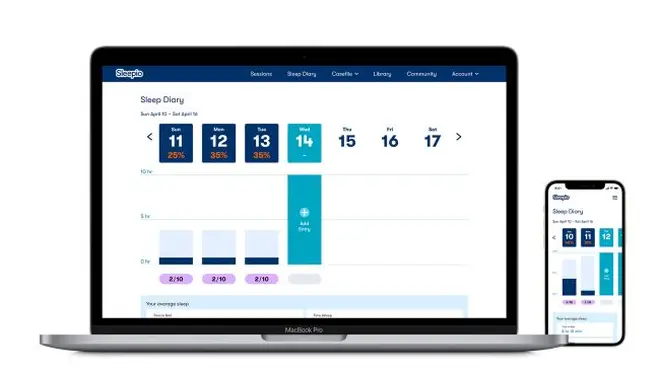
Vanessa Feltz 3pm - 6pm
20 May 2022, 17:27

Hundreds of thousands of patients who have trouble sleeping will be offered treatment from a phone app instead of sleeping pills by doctors.
A sleep app, which offers a digital six-week treatment programme, could be used to replace sleeping pills for people suffering with insomnia.
The app - called Sleepio - uses an algorithm to provide individuals with tailored cognitive behavioural therapy for insomnia (CBT-I).
The National Institute for Health and Care Excellence (NICE) said it would save the NHS money as well as reducing prescriptions of medicines which can be dependency forming.
Currently, the main medicines prescribed are zolpidem and zopiclone.
Analysis conducted by NICE found that healthcare costs were lower after one year of using Sleepio. This was put down to fewer GP appointments and sleeping pills being prescribed.
The app provides a digital six-week self-help programme involving a sleep test, weekly interactive CBT-I sessions and keeping a daily diary about sleeping patterns.
The sessions focus on identifying thoughts, feelings and behaviours that contribute to the symptoms of insomnia.
Cognitive interventions aim to improve the way a person thinks about sleep and the behavioural interventions aim to promote a healthy sleep routine.
NICE predicts that around 800,000 people currently have insomnia in England.
Patients will also have full access to the app for 12 months despite treatment intended to take six weeks. It will also allow patients to repeat sessions, and complete the treatment at their own speed.
Read More: PM's Eton Mess! Jamie Oliver leads Downing Street protests over governments obesity u-turn

Read More: PM insists he won't stop Sue Gray from naming and shaming No10 aides who broke Covid rules
Clinical evidence presented to NICE's medical technologies advisory committee from 12 trials showed that Sleepio is more effective at reducing insomnia than sleep hygiene and sleeping pills.
Jeanette Kusel, acting director for MedTech and digital at NICE, said: "Until now people with insomnia have been offered sleeping pills and taught about sleep hygiene, so our committee's recommendation of Sleepio provides GPs and their patients with a new treatment option.
"Our rigorous, transparent and evidence-based analysis has found that Sleepio is cost-saving for the NHS compared with usual treatments in primary care.
The app is also designed to decrease people's dependency on sleeping pills that are often used to treat insomnia.
"This is a good example of where a digital health technology can help the NHS.
She added: "The evidence has shown using Sleepio reduces the number of GP appointments people with insomnia need and will also cut the number of prescriptions for sleeping pills delivered by pharmacists."
The cost of Sleepio is £45 per person, and NICE say that it will prove to be more cost effective than standard treatments - as seen in tests conducted in nine GP practises.
The NICE committee has recommended a medical assessment should be done before referral to Sleepio during pregnancy.
It has also recommended more research or data collection to show how effective Sleepio is compared with face-to-face CBT-I.